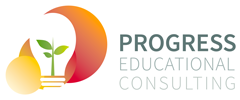TARGET AUDIENCE: WHOLE STAFF
Defining, developing and assessing the learning and life attributes of the whole child – featuring the development of a tailored Wave 1-2/3 whole school evidence map and engagement schedule that provides evidence of whole child development.
Modern education; so much more than just the three R’s
Literacy and numeracy outcomes are vital, but also those wider, less well defined or measured educational outcomes such as: critical thinking; problem solving; collaboration; creativity; communication; social responsibility and self-management skills; life attributes that we at PROGRESS Educational Consulting believe define the whole child. (Click here for an A4 outline of the day to share with staff.)
This statement gives rise to a series of questions:
- What is important to you?
- How do you assess it?
- When do you assess it?
- How do you engage with this assessment meaningfully?
All are worthwhile inquiries.
Before responding to these, there are deeper questions that cut to the core of modern education which must first be confronted collaboratively: what knowledge, skills, attitudes and values will today’s students need to thrive and shape their world? Whatever your answer, quality assessment tools are required if you are to identify your effectiveness in these critical areas of learner development.
There is no doubt that effective assessment is a critical tool if teachers are to understand the level of student learning and to better inform classroom practice differentiation. To achieve this there needs to be assessment differentiation across year levels that features a suite of assessment tools that account for the developmental stage of all learners. This is particularly important for the 15-20% of students who require additional support. Learners that we define as ‘those that need us most’.
Langworthy captured the imperative of this work in their article; Rich Seam: How new pedagogies find deep learning (2014) “…that students will gain the competencies and dispositions that will prepare them to be creative, connected, and collaborative life-long problem-solvers and to be healthy, holistic human beings who not only contribute to but also create the common good in today’s knowledge-based, creative, interdependent world.”
“While many of these outcomes (21st C) have long been recognised as important, they have often fallen outside the scope of what has been mandated, made explicit, assessed or certificated. As a consequence, it has been all too easy for them to remain at the level of rhetoric rather than at that of deliberate policy.” (Hill and Barber, 2014, Preparing for a renaissance in assessment)
Kristen DiCerbo and John Behrens (2014: 10) see these changes as amounting to a paradigm shift in assessment, involving: “a focus on a broad range of attributes versus measuring narrowly defined knowledge and skills” (cited by Hill and Barber, 2014, Preparing for a renaissance in assessment)
“Simply put, few people outside of school care about what you know. However, they care a great deal about what you can do with what you know.” (Watanabe-Crocket, 2019, Future proofing our learners)
“While many of these outcomes (21st C) have long been recognised as important, they have often fallen outside the scope of what has been mandated, made explicit, assessed or certificated. As a consequence, it has been all too easy for them to remain at the level of rhetoric rather than at that of deliberate policy.” (Hill and Barber, 2014, Preparing for a renaissance in assessment)
We will engage in rich dialogue, informed by research that incorporates the work of Fullan, Hattie, Hargreaves, Watanabe-Crockett, Bernhardt, Dweck and Claxton, as we collaboratively identify and define:
- the attributes that contribute to a whole child of the 21st Century
- strategies and assessment tools that allow you to assess the life attributes of a whole child
- a whole school approach to assessment that acknowledges the developmental stage of all learners (Wave 1-2-3) in core aspects of the curriculum; mathematics, reading, spelling and writing
As a result, you will walk away with the beginning of a whole school evidence map that covers not only the core academic strands but also tools to help determine growth of valued whole child attributes; attributes that will set learners up for life.
We’ll consider your professional learning experience successful if you:
- have defined the attributes of a whole child, given your unique context, that you intend to prioritise, develop and measure
- are ready to measure what you value by having the basis of a tailored whole school evidence map
- understand and engage with assessment tools such as student focus groups, leader/peer walkthroughs and micro teaching
- have planned your data engagement strategy for leaders and teachers so that teaching strategies are informed by evidence of student development
Have a question for Travis, or need more info? Let’s chat.
Under no obligation, our preference is to spend time with you prior to delivering professional learning for teachers, or tailored leadership guidance, so that the partnership we develop is unique to your school.
When pursuing PROGRESS FOR ALL, All of the time, we believe time spent planning is time well spent.

